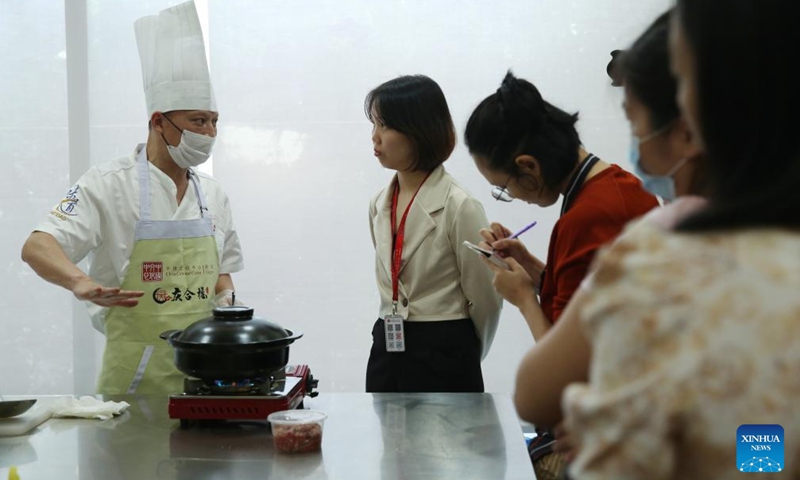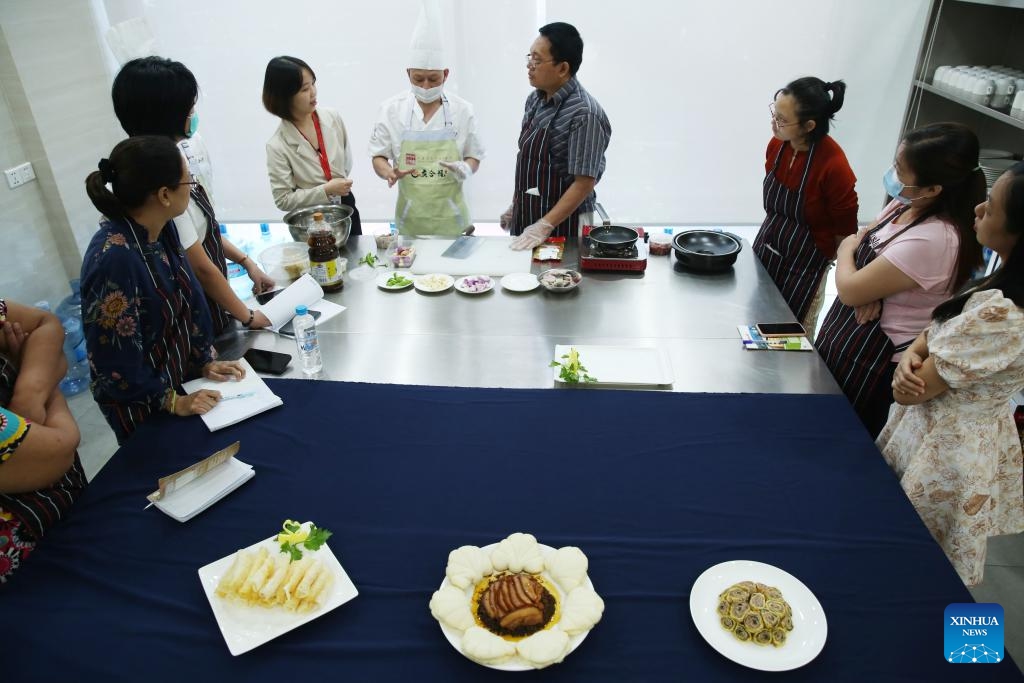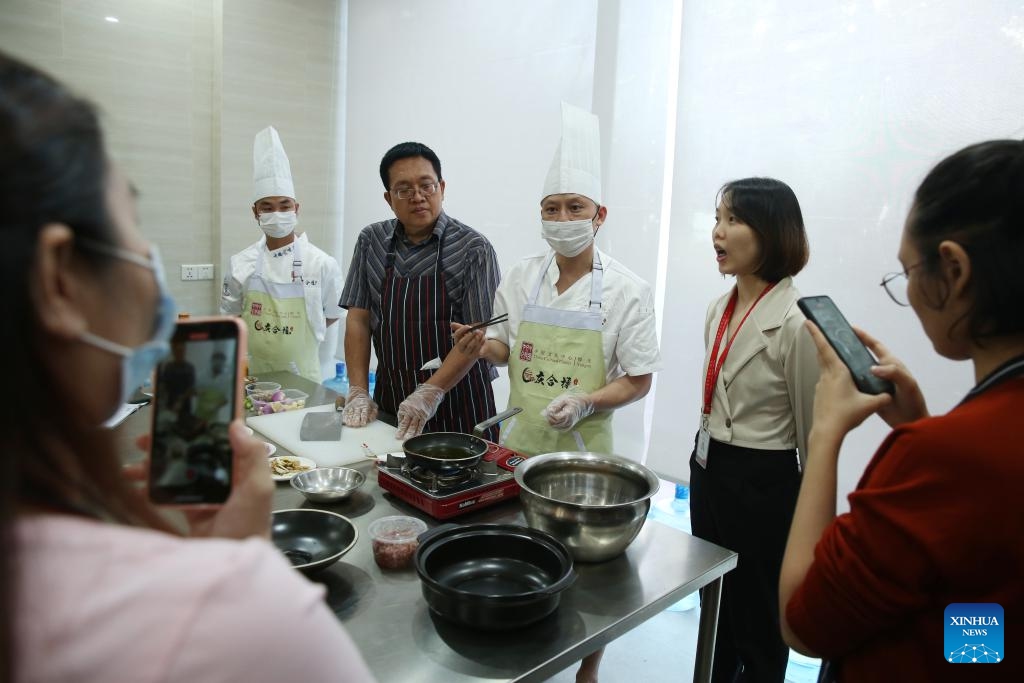
Locals learn Chinese culinary skills during a class at the China Cultural Center in Yangon, Myanmar, Jan. 16, 2024.(Photo: Xinhua)

Locals learn Chinese culinary skills during a class at the China Cultural Center in Yangon, Myanmar, Jan. 16, 2024.(Photo: Xinhua)

Locals learn Chinese culinary skills during a class at the China Cultural Center in Yangon, Myanmar, Jan. 16, 2024.(Photo: Xinhua)
Phyu Cin, a 21-year-old student from Yangon, Myanmar, displayed great enthusiasm as she was learning how to cook Chinese cuisines at the China Cultural Center in Yangon on Tuesday.
"While learning here, I've got known a lot on how to cut vegetables, what ingredients to add or avoid in curry, and how to adjust the heat for cooking," she said.
Phyu said the connection between food and culture is significant. "If someone loves something from another country, they will come to love the country itself. If someone enjoys Chinese dishes, they will develop an affinity for China. Therefore, food has a cultural connection."
"I enjoy cooking fish, and I appreciate the Chinese tradition of eating with family members," she said, expressing her happiness of enjoying the Chinese culture despite not being Chinese.
Phyu, who started learning Chinese last year, has also attended courses of traditional Chinese dances and wushu at the China Cultural Center.
May Thazin Khine, a 33-year-old local Chinese resident in Yangon, said that at the center, she made her first attempt at acquiring cooking skills. Regarding her decision to attend the cooking course, May said she wanted to learn how to cook since she had never done it before.
"By learning here, I will try to cook at least one dish for the New Year's Eve dinner at home this year," she said. Among the various Chinese dishes she currently knows about, chicken dishes are her favorite.
"Now, I know how to hold a knife and what to do when the food sticks to the pot," May said. She emphasized the role of food in her life, saying, "Food is 100 percent important for me."
Ma Ei Ei Khin, 43, expressed her joy as she learned culinary skills at the cultural center. She enjoys preparing not only Chinese food but also Myanmar, Thai and Korean dishes. She plans to cook the dishes she has learned for her family and friends.
"By learning the techniques of Chinese food cooking, I also come to understand the culture behind them," she said.
U Kyaw Myo Tun, a 49-year-old local Chinese resident in Yangon, who is the only male student in the cooking class, has showed great interest in preparing dishes. After having joined the class, his knowledge of various Chinese cuisines expands a lot.
"I will cook the dishes I learned during the class for the New Year's Eve dinner," he said, highlighting the deliciousness of chicken and steamed fish dishes.
In his eyes, for Chinese people, food bears great importance, especially during wedding receptions and New Year's Eve celebrations.
Peng Lihui, a 47-year-old Chinese chef with 30 years of experience, is the teacher of the cooking course. He said, "The purpose of the course is for cultural exchange through food. As the Chinese New Year is approaching, we have selected dishes essential for the New Year's Eve dinner to teach in the class."
"The dishes were chosen for their easy preparations at home, and each dish carries symbolic meaning. For instance, a fish dish symbolizes abundance, while an egg roll represents good fortune," he added.
The China Cultural Center in Yangon launched the Chinese food cooking course for local residents on Jan. 9 in anticipation of the traditional Chinese New Year. The course, covering the preparation of 12 varieties of Chinese cuisine, is held on Tuesdays and Wednesdays until Feb. 6. The Chinese Lunar New Year falls on Feb. 10 this year.
A total of 10 Myanmar students are attending the cooking course.
The New Year's Eve dinner, also known as the "reunion dinner," is regarded by some as the most important meal of a year for the Chinese people, eaten on the night before the first day of the Chinese Lunar New Year.
